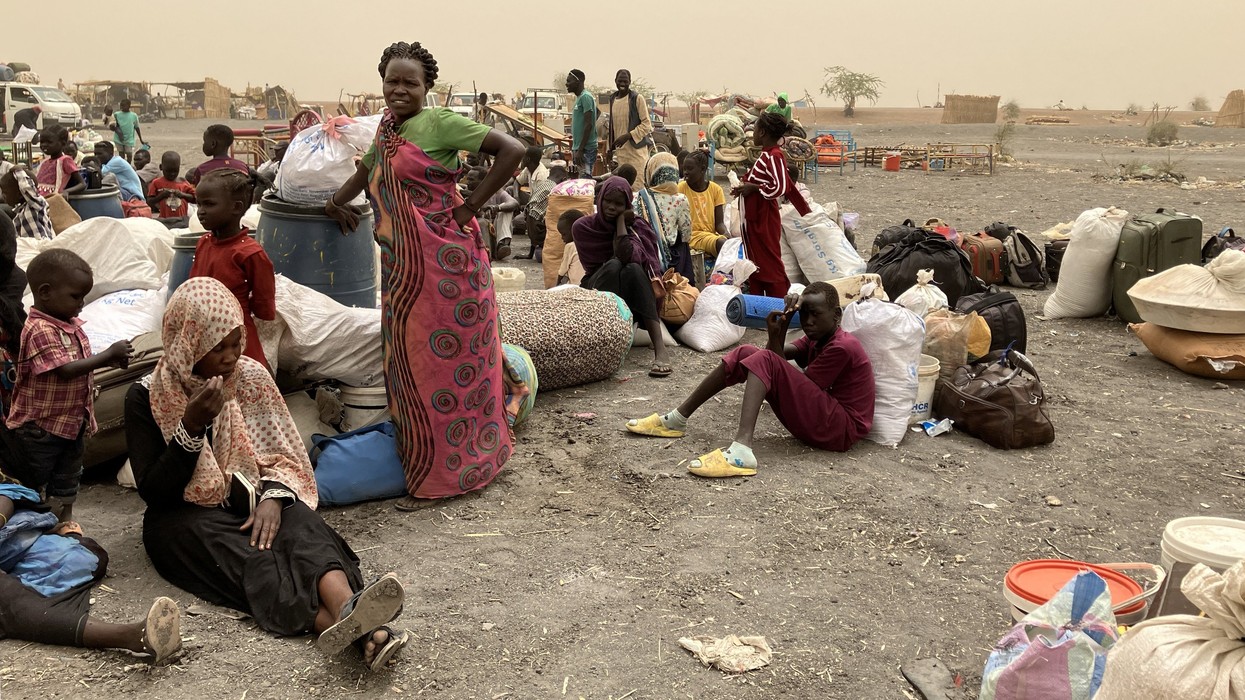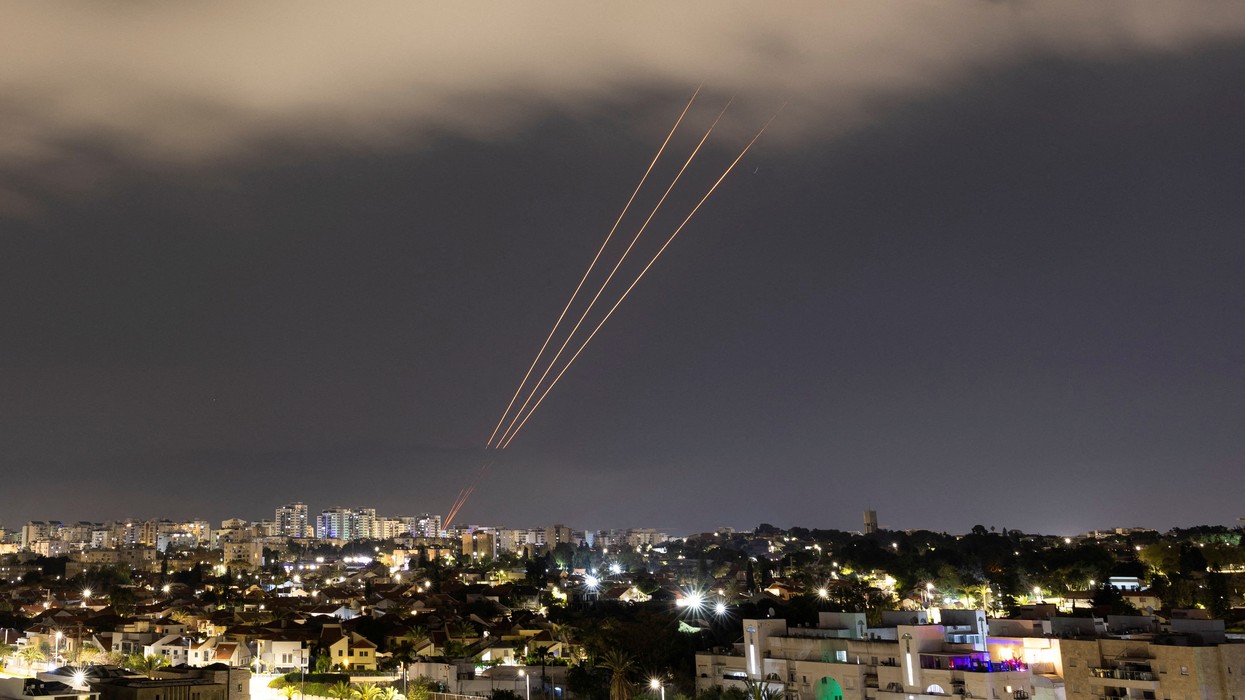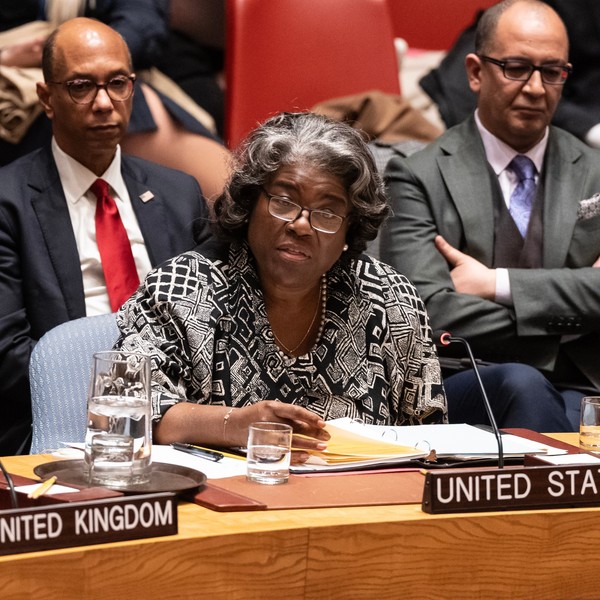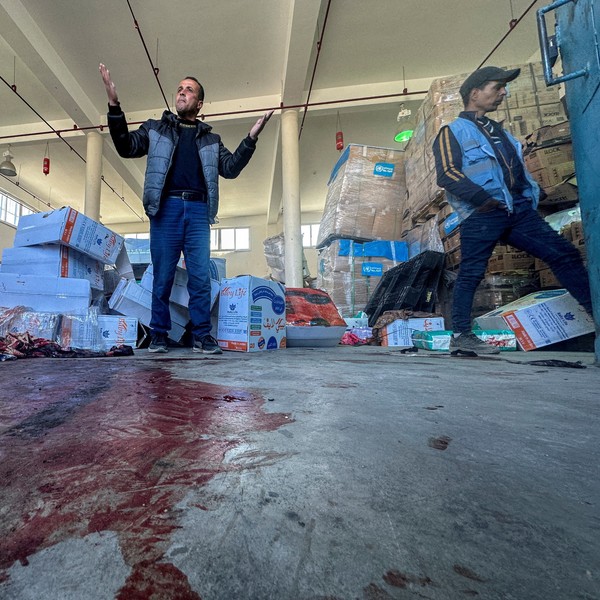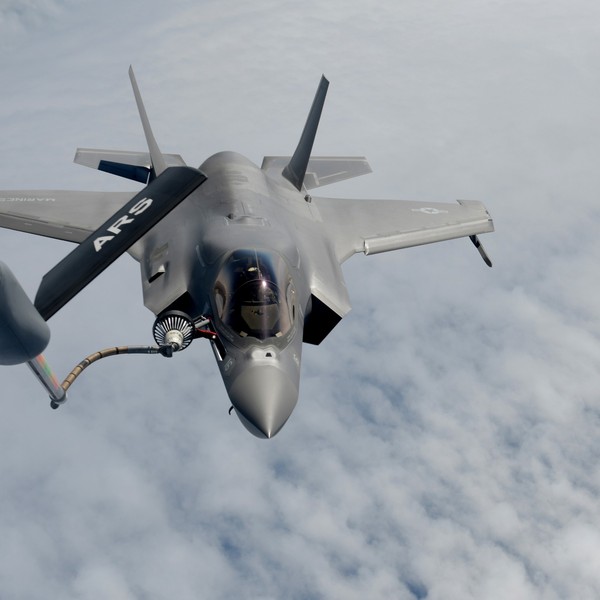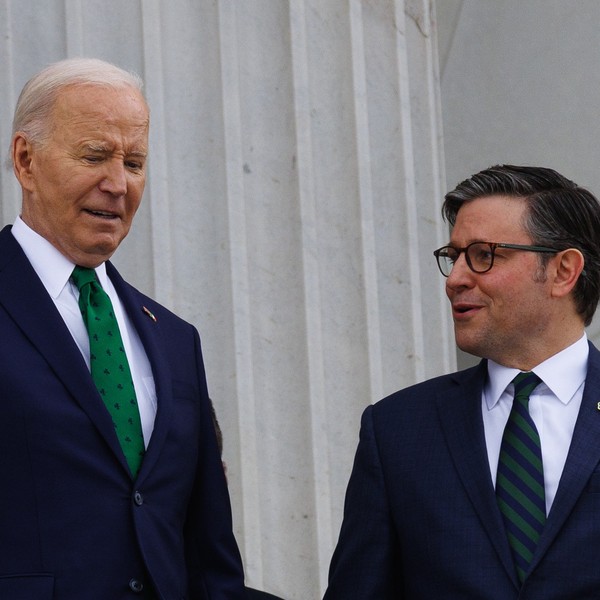There is a real chance to end the killing in Tigray, Ethiopia. Today, delegations from the Federal Government of Ethiopia and the Government of Tigray are due to meet face to face in South Africa at African Union-led talks. Much depends on how tough the AU mediators and their international partners—especially the U.S.—are prepared to be.
Over the last week, the diplomatic narrative around the war has changed. In back-to-back meetings on Friday, first at the African Union Peace and Security Council (PSC) in Addis Ababa, and then at the United Nations Security Council in New York, African leaders rediscovered urgency and principle.
Meanwhile, Ethiopia showed its hand by lobbying Russia and China to block the adoption of a statement put forward to the Security Council by the African members— collectively known as the “A-3”(currently Gabon, Ghana and Kenya).
The success of Prime Minister Abiy Ahmed in dominating the narrative among the diplomatic community in Addis Ababa appears to have blinded him to his vulnerabilities. Earlier in October, working hand in glove with Abiy, AU Commission Chairperson Moussa Faki set in motion a slapdash conspiracy to set up a façade of talks, with a schedule and agenda designed to bless an anticipated military fait accompli by the joint Eritrean-Ethiopian offensive in Tigray. Exposed, the ruse rebounded on its originators. Former Kenyan president Uhuru Kenyatta wrote a scathing riposte, in which he called out the lack of consultation and insisted that the first agenda item should be to end the fighting.
On Friday, the PSC met, and for the first time, Ethiopia faced pushback. In deference to Ethiopia, the PSC didn’t issue a communiqué, just a press statement, but it called for “an immediate, comprehensive and unconditional ceasefire and the resumption of humanitarian services.” Otherwise, it stuck to form, emphasizing its commitment to former Nigerian President Olusegun Obasanjo as chair of the mediation panel. It was silent about Eritrea’s leading role in the war, to preserve the fiction that the war is solely an internal Ethiopian affair, and thus not a matter for the Security Council.
Ethiopia had not wanted the matter to go any further, but the A3 had agreed to a closed session of the Security Council later the same day. Obasanjo joined virtually and his briefing signaled two shifts: he called for an immediate cessation of hostilities and said that “AU-led” negotiations didn’t mean that the AU would go it alone.
The A-3 drafted a statement that expressed “grave concern” about the hostilities and the humanitarian crisis. But this was blocked by Russia and China (the “P-2”), at Ethiopia’s instigation. Until that point, all had optimistically assumed that the P-2 would follow the African lead. The Kenyan representative challenged them, demanding to know why they opposed an African position — an action almost without precedent. Reportedly, neither gave a confident answer.
Ethiopia’s tactical success in blocking the Security Council statement is its strategic failure. It poses the question, why is it ready to risk its relations with Africa for the sake of Russia and China? In turn, this raises the issue of whether Eritrean President Isaias Afewerki — Russia’s most steadfast African ally — is calling the shots?
The U.S. Permanent Representative to the UN, Linda Thomas-Greenfield, could scarcely conceal her anger after the failure of the meeting. On Saturday, a government-organized rally in Addis Ababa saw demonstrators trampling American and European flags and waving the Russian one. Abiy has become accustomed to U.S. appeasement, using the not-so-subtle threat of switching to the Russian or Chinese camps as a deterrent. But now he has played that card, he may find it’s a losing hand.
Those with long diplomatic memories will recall that in 1977, U.S. National Security Advisor Zbigniew Brzezinski said that détente lay “buried in the sands of the Ogaden”, after Ethiopia dramatically switched sides in the Cold War, getting a massive Soviet and Cuban airlift of military supplies that swung the Ethio-Somali war in Ethiopia’s favor. But Abiy cannot repeat then-dictator Mengistu Haile Mariam’s feat: his government needs American and European financial bailouts, and Russian and Chinese aid cannot compensate.
Congressional pressure is mounting for a tougher U.S. stand against those responsible for atrocities along with harsher measures against Eritrea. The U.S. strategy for atrocity prevention was updated in July, and senior figures are calling for it to be activated.
The AU and Ethiopia have also angered the European Union. Offended by the principled stand taken by High Representative Josep Borrell, the AU didn’t invite the EU to be an observer at the peace talks. This is a brazen move. The EU is not only the largest and most loyal funder of the AU Commission and its peace operations, but Europe has an obvious vested interest in constraining the adventures of the world’s most prolific generator of refugees, Isaias.
Abiy’s plan had been that joint Eritrean and Ethiopian forces would occupy the Tigrayan capital Mekelle and he would declare the war over before the talks opened. The battlefield isn’t running to his timetable.
Under orders to press forward regardless of the cost, the joint forces are making gains, overrunning the towns of Shire and Axum. The material balance of forces is in their favor. But they are facing formidable resistance, as the Tigray Defense Forces switch to mobile and guerrilla tactics. It’s worth remembering that Abiy declared the mission accomplished after taking over Mekelle in November 2020, and then was driven out by the TDF. This time around, the TDF is better prepared, and the joint forces are weaker. Tigray would likely become a quagmire, in which Eritrea and Ethiopia bleed.
Tigray will bleed too. The Ethiopian soldiers moving in are undisciplined and afraid. They are the survivors of battlefield maulings, as terrified of every Tigrayan whom they encounter as they are of the Eritrean death squads that accompany each unit under orders to shoot deserters. A traumatized rabble with guns ordered to control a hostile population is a formula for mass atrocity. Some Ethiopian social media commentators are already floating advance justifications for such indiscriminate killing. Alice Nderitu, the UN Special Advisor on the Prevention of Genocide, has expressed her alarm about overtly genocidal hate speech and incitement to violence.
As feared, serious violations followed the joint forces’ advance: rapes, killings, lootings, including aid warehouses. A World Food Program spokesman told Associated Press that a nameless “armed group” entered its warehouse the day after Eritrea took control.
The AU panel of Obasanjo, Kenyatta, and former South African Deputy President Phumzile Mlambo-Ngcuka will not be impressed if the Ethiopian Government delegation says it doesn’t have the authority to declare an immediate cessation of hostilities. Nor can the panel turn a blind eye to Eritrea.
A secret pact between Abiy and Isaias lies at the heart of the war. What kind of agreement could require Abiy to sacrifice scores of thousands of Ethiopian lives, squander his country’s scarce resources, and risk relations with the west, for Eritrea’s agenda? After Friday’s Security Council meeting, African and western patience with Abiy’s dissembling on Eritrea may finally have run out.
The Ethiopian prime minister will pay a high price for repudiating the Eritrean despot, but a higher one for turning away from his last chance for peace. The U.S. and Europeans can impose high costs on Ethiopia on Abiy if refuses to declare a cessation of hostilities in the coming days. But with emotion and hatred running so high in Addis Ababa, it’s not clear whether Abiy can make that fateful calculation.
The most recent estimates are that between 383,000 and 600,000 civilians died in Tigray between November 2020 and August 2022, from atrocities, lack of health care and hunger. Tens of thousands likely perished in neighboring Amhara and Afar regions. Estimates for the numbers of combatant deaths on all sides start at 250,000 and range up to 600,000. Without a cessation of hostilities, humanitarian aid, and the removal of Eritrea, those needless deaths may just be the first installment.

